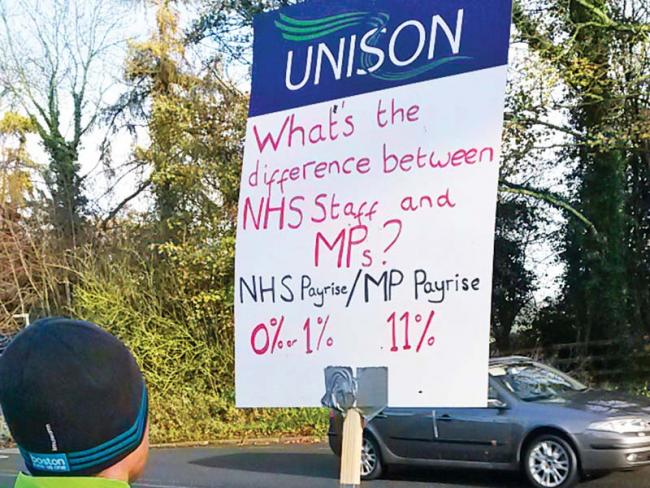
Pickets at the Royal National Orthopaedic Hospital in November 2014. Photo Workers.
Unions in health will be meeting at the start of March to consider the results of the ballots on the government’s offer in the NHS pay dispute. If the offer is accepted, the issue is closed. Otherwise, the stage is set for further strike action on 13 March.
No one on the union side is claiming a victory, with most saying the offer is the best that can be expected without further action. There are some small improvements in relation to pay spines and consolidated pay (which would be part of pensionable salary), but overall the offer can be politely described as not very good.
But while all eyes were on Jeremy Hunt’s general pay offer to unions, an important aspect of that offer received scant attention – provisions relating to ambulance workers.
Almost a year ago a national strike in the ambulance service very nearly took place, (“Ambulance dispute looms”, Workers April 2014) when the employers tried to change unsocial hours provisions. Hunt’s current offer settles that dispute – by conceding the unions’ point. The offer also talks about reimbursing ambulance workers’ pension contributions, which unions hadn’t even asked for!
Why these big steps forward? The fact is that ambulance workers are generally better organised and are capable of delivering dangerously powerful industrial action. The thought of a 12-hour ambulance strike on 29 January followed by 24 hours on 25 February, with the prospect of real threat to life and limb on the streets of London and other large cities, finally shook the government into action. Hunt called the unions in, initially to lambast them, but ultimately to make an offer he didn’t want to make.
It should come as no surprise that there are effectively two different settlements on offer. Both reflect the industrial action that produced them. Lessons, as from all disputes, will have to be learned. Non-union members must join. Union members must vote in the ballots that lead to action, and fight once the decision to fight has been taken.
The NHS is far too important to be a general election issue. It is an issue involving politics. And political issues are fought out in workplaces, not in elections, nor in parliament. If that lesson is learned, the NHS pay dispute will constitute a real victory.
• A longer and earlier version of this article was published online here.
